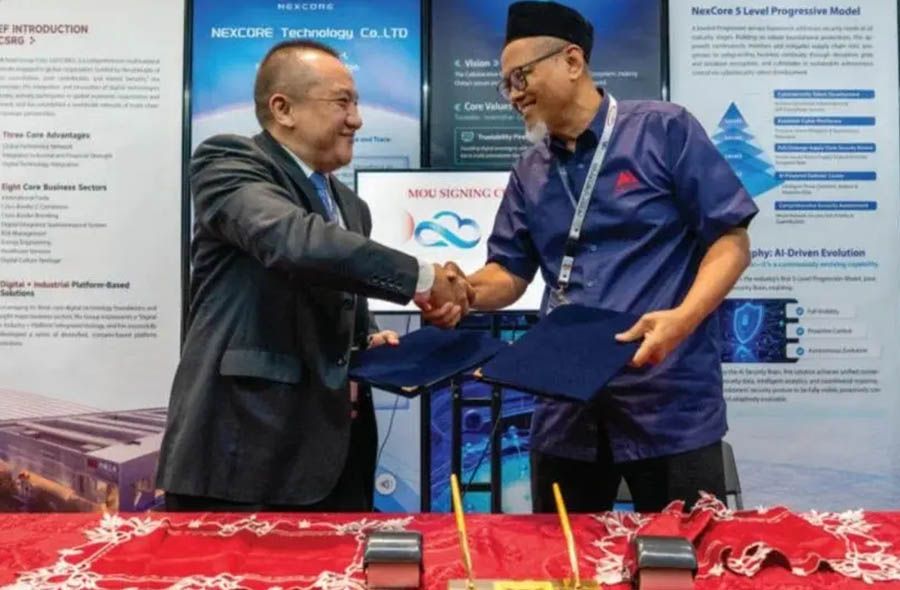
Mindmatics, Nexcore partner to boost Malaysia’s AI cyber defence
New Sources: New Straits Times
KUALA LUMPUR: Local defence firm Mindmatics Sdn Bhd has partnered with Nexcore Technology Co. Ltd to develop a next-generation artificial intelligence (AI)-powered multi-source communication box and cyber defence system aimed at accelerating Malaysia’s capabilities in digital defence.
The collaboration brings together Mindmatics’ expertise in defence electronic systems with Nexcore’s AI technological innovation to develop the Next Generation AI Multi-source Communication Box.
It also focuses on enhancing secure data exchange through the integration of post-quantum cryptography (PQC), ensuring that communications remain protected even against future quantum computing risks.
Mindmatics Sdn Bhd director Abdul Wahab Sulaiman said the collaboration was unique as it emerged at a time when integrating AI into cyber defence is essential to combat increasingly sophisticated and constantly evolving cyber threats.
“Nexcore is offering us the core building blocks, including large language models, that we can adapt for various functions such as cyber defence and even cyber offence. This partnership gives us a free hand to shape the system based on our needs,” he said.
The AI multi-source communication box, Abdul Wahab said, would enable different platforms of communication, including radios and mobile phones, to operate seamlessly through a unified platform.
It also incorporates AI to automate decision-making and filter threats from the outset.
“It doesn’t wait until data reaches the backend firewall. From the start, the system can identify threats and redirect sensitive communication into secure channels,” he explained.
Wahab said the new system would address current gaps in Malaysia’s communication and cybersecurity infrastructure by integrating multiple technologies into a single, AI-enhanced framework.
He added that the partnership would also fast-track development timelines, significantly boosting Malaysia’s readiness in the face of increasingly complex cyber threats.
“What we initially thought would take five years, we now believe can be done in two,” he said.
By Fuad Nizam